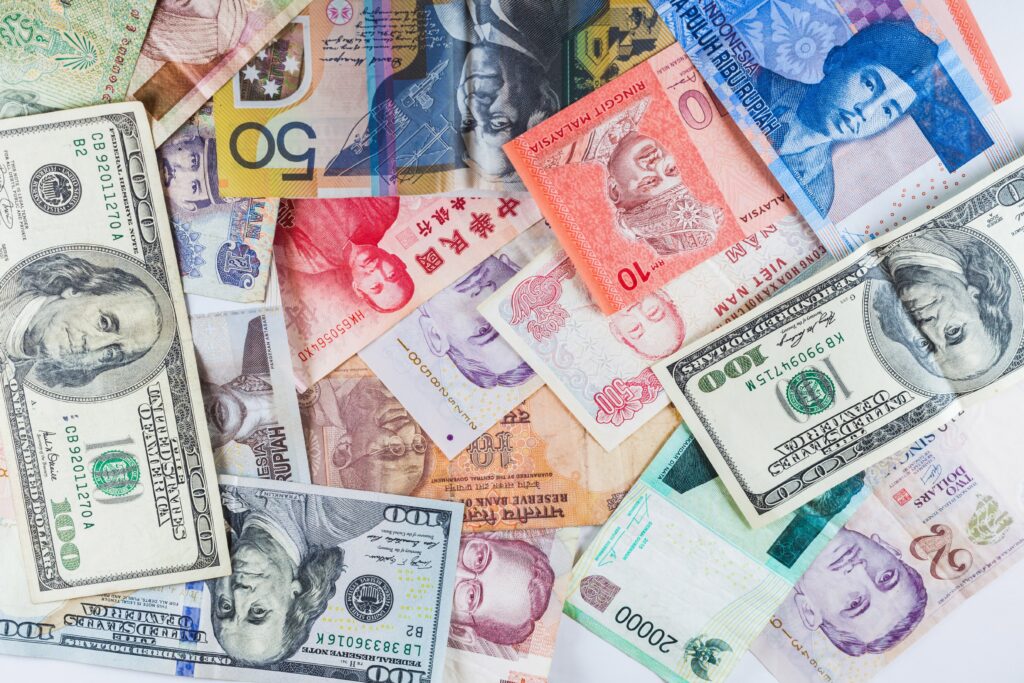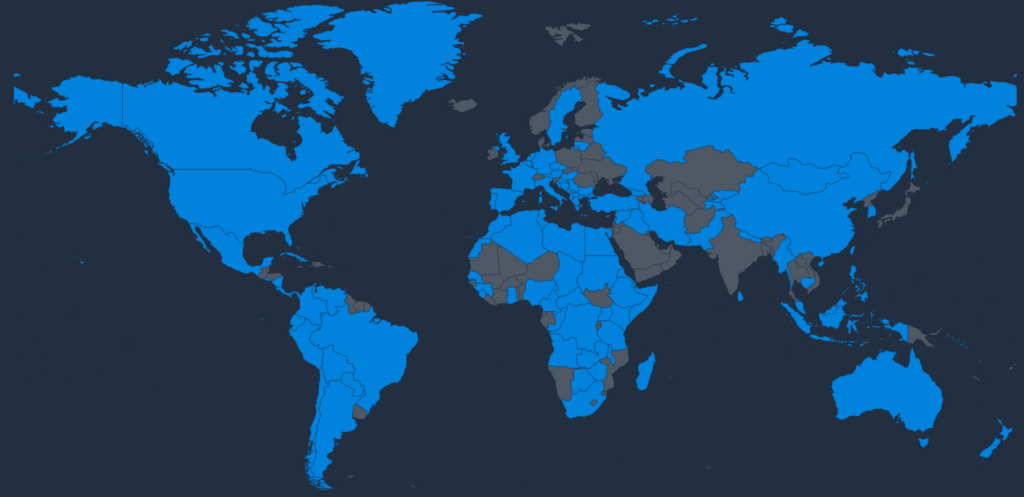Commerce

Commerce
Opaque financial flows from authoritarian influencers undermine the rule of law and democratic governance in recipient countries.
Overview
The extraordinary growth of international trade and investment is a defining feature of globalization. In this enabling environment, authoritarians wield state-owned and nominally private economic entities as political instruments. The state-capture systems mastered by oligarchs while building power and influence at home are being deployed abroad and used by authoritarian powers to gain a foothold in strategic markets such as energy, telecommunications, and banking.

Authoritarian “corrosive capital” is enabled by weak legal safeguards and limited accountability and transparency mechanisms. The openness of the international financial system also makes it difficult to identify linkages to authoritarian actors who can easily route funds through firms registered under beneficial ownership accounts in third-party countries.
Sharp Power Influence
Autocratic actors leverage capital to exaggerate governance gaps and influence economic, political, and social developments in recipient countries through multiple mechanisms :
- State-sponsored loans that mimic traditional development assistance
- Support for large-scale infrastructure projects that rope countries into long-term, lopsided economic relationships
- Foreign direct investment by nominally private firms that are ultimately linked to an authoritarian state-backed entity
- Restricted market access that induces foreign companies to tout authoritarian narratives and censor content deemed unfavorable
These efforts are not necessarily predicated on huge amounts of money but instead stem from strategically-focused agreements with well-connected elites in strategic sectors of open societies.
Corrosive capital hides amid layers of larger exchanges with authoritarian regimes, the majority of which may appear legitimate and can have a financial, political, or cultural character. As established democracies and their private sectors come to grips with the threat posed by strategic corruption, democracies with less developed institutional frameworks for preventing corruption and providing transparency are at an even greater risk.
The Kremlin’s ability to wield state-owned and nominally private economic entities as political instruments, swiftly and without visible deliberation, has allowed it to achieve outsized global influence.
Democratic Responses
Civil society can help bolster the institutions and accountability mechanisms needed for a strong defense against authoritarian corrosive capital.
Norms and Standard Setting
- Private sector firms should adopt business strategies that prevent authoritarian actors from inducing the revision of public statements, the sanctioning of employees, the alteration of maps, and the like.
- Businesses should weigh the reputational risks associated with censoring content, especially when authoritarian demands conflict with the expectations of their consumers.
Cross-Sector Collaboration
- National security agencies, antitrust authorities, and financial market regulators should strengthen their capacity to investigate money-laundering activities in cooperation with civil society and whistleblowers.
- Civil society activists, think tank analysts, and investigative journalists can collaborate to follow financial flows and study negotiations, agreements, and transactions in local settings.
Education and Awareness
- Civil society-led efforts to expose domestic and foreign state-capture practices are an effective check on corrosive capital inflows linked to large-scale infrastructure projects or strategic mergers and acquisitions.
Commerce
The reporting and analysis catalogued in the Portal illustrates how authoritarian powers compromise the integrity of civic institutions in countries around the world through corrosive capital agreements and opaque investments.

Latest Resources
View All
Source: Jerusalem Post
Publication Date: September 29, 2023
Sweden Accuses Iran of Targeted ‘Misinformation’ about Quran Burnings
Authoritarian Country: Iran, Russia
Affected Region: Europe, Sweden
Author: Seth J. Frantzman
Iran and Russia-backed disinformation campaigns have used recent Quran burnings to manipulate sentiments in Sweden. Fearing the effects of these malign efforts, the Swedish government has tasked its Agency for Psychological Defense with countering these campaigns.
Source: U.S. Department of State
Publication Date: September 28, 2023
How the People’s Republic of China Seeks to Reshape the Global Information Environment
Authoritarian Country: China
Affected Region: Global
The PRC has sought to shape the global information landscape in its favor through information manipulation, intimidation, co-opting journalists and enabling digital authoritarianism with cutting-edge technology.
Source: Center for European Policy Analysis
Publication Date: September 26, 2023
Moldova’s President Calls Out Russian Meddling
Authoritarian Country: Russia
Affected Region: Europe, Moldova
Author: Ahshish Kumar Sen
Moldova has sought support of the EU and international community to safeguard its democratic processes against Russian subversion. Russian tactics include election interference, disinformation, and economic blackmail.
![]() Source: Foreign Policy Research Institute
Source: Foreign Policy Research Institute
Publication Date: September 19, 2023
China’s Belt and Road Initiative: Politics Over Economics
Authoritarian Country: China
Affected Region: Global
Author: Felix K. Chang
China’s Belt and Road Initiative (BRI) has been expected to enter a new phase following the PRC’s Third BRI Forum in October 2023. With over 150 countries participating in the BRI, China’s plans for its signature initiative have appeared increasingly political and less focused on infrastructure development.
![]() Source: Power 3.0
Source: Power 3.0
Publication Date: September 12, 2023
Taiwan on the Frontline of China’s Information Operations
Authoritarian Country: China
Affected Region: Asia-Pacific, Taiwan
Author: Ko Shu-Ling
Within Taiwan, PRC-backed media outlets have discredited pro-independence perspectives and increased polarization through disinformation. Beijing has relied on its state agencies, Taiwanese provincial governments, commercial media, and social media to amplify these information manipulation operations.
Source: Middle East Institute
Publication Date: September 3, 2023
Iran Gleefully Eyes the Protests in Israel, Looking for Weaknesses to Exploit
Authoritarian Country: Iran
Affected Region: Middle East and North Africa, Israel
Author: Jason M. Brodsky
In addition to violent intervention through proxy militia groups, Iran has used cyber interference to exacerbate political rifts in Israeli society and advance Iranian interests. Iran-backed disinformation campaigns have misled high-level officials and target Israelis across the political spectrum.

